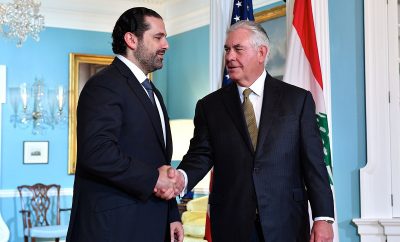 Image courtesy of [Tony Webster via Flickr]
Image courtesy of [Tony Webster via Flickr]
Law
ISIS Recruits in Minnesota to Receive Counseling
Minnesota has one of the biggest groups of ISIS-recruit defendants in the country; a large diaspora of Somali immigrants, socially isolated from the rest of society and often facing racism, can be a breeding ground for extremism. Ten years ago there was the case of a few young Somali men leaving Minneapolis to fight for al-Qaeda, now it’s ISIS in Syria.
Since 2014 the FBI has arrested nine young Somali American men in the state for planning to join ISIS. They are charged with conspiring to commit murder abroad, and providing material support to a terrorist group, charges that carry life and 15 years in prison, respectively. Now officials in Minneapolis are turning to different approaches, by treating the young men with counseling instead of extended prison sentences.
U.S. District Judge Michael Davis, who is in charge of the case, said that they have consulted a German researcher, Daniel Koehler, to investigate the young men before starting a de-radicalization program, a method that is common in European countries such as Germany and Denmark.
Six of the nine men have pleaded guilty to the crimes they are charged with, and all of those six have already volunteered for the program that Koehler is about to set up. The aim is to reintegrate the men into society, instead of locking them up without treating the actual causes of radicalization. These evaluations could lead to shorter prison sentences and a focus on probation.
Heartland Democracy is a local Minneapolis group that is conducting its own counseling for young radicalized men. Ahmed Amin, a high school teacher who moved from Somalia to the US with his family at the age of 12, is one of the counselors, and said to NPR:
I understand the difficulties of identity that lead people to join organizations like ISIS. It is hard trying to live in two worlds. From 9 to 5 these kids have to live one way when they are at school, they are socialized to be American. And then they go home, learn to be religious and are trying to cope with that. It is harder than you’d think.
One of the young men participating in the trial was Abdirahman Bashir, who agreed to become an informant for the FBI after his attempt to leave the U.S. for Syria failed. Since he cooperated by spying on his former friends, he is unlikely to face any charges, and told the court on Tuesday that he was looking to pursue a career in law enforcement. He even asked one of the FBI agents if he could use him as a reference on his school application. Hopefully, education, integration, and communication can help end extremism and radicalization as we know it.








Comments